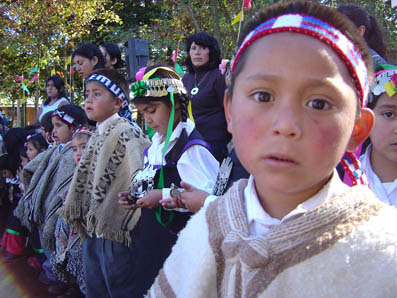Teaching is not only about giving a lecture since there are essential characteristics that make a difference, and the most important one is true professionalism in our daily work, no matter the specific locations we may be working in. Certainly, this is something well-known by rural teachers: People willing to accept the challenge to bring education to isolated areas as a way of breaking down the social gap that weakens the progress of our country.
The long distance between villages and schools makes the educational goals even more difficult to reach. The often inclement weather over these extreme regions are sadly ignored by those who have the opportunity to attend school normally.
Undisputably, teaching cannot be reduced to intellectual skills since we are constantly dealing with particular social realities that need to be managed as such. For example, a rural teacher needs to know how to use the acquired theoretical knowledge to provide an education of excellence and also to solve problems and concerns regarding his/her specific context. A rural teacher needs to be aware of the cultural diversity in which he's working on so students might feel part of the current educational project.
Santiago Is Not Chile
Rural teachers work for their community 24/7, and this is something we must learn about them as a true commitment is the beginning of progress in our class. Being a teacher is more than going to school every day and doing our work in the classroom as our role goes beyong the classroom itself: We must integrate each other in order to make trascendental changes in our students and so in our society. Also, it is of key importance to keep updating our knowledge and skills to provide an education of excellence. Thus, this social commitment has to do with developing our professionalism by participating in school, attending conferences, addressing critical issues and investigating about our own practice every single day as there is no progress if we cannot determine the factors that weakens our projects.
•Our goal: To provide equal educational conditions for our students by taking into account their culture and roots in this process. That means, to contextualize the curriculum.
The Educators We Need
- •Our teachers must be able to use pedagogical knowledge based on their students’ needs
- •As we are supposed to work inside a community, we must INTEGRATE each other (Teacher- Students – Families)
- •We are not here only for teaching contents, but also for being part of a different culture and way of living
- •Education needs to be based on our students’ prior knowledge. There’s no learning without cultural awareness
Teaching is undoubtedly one of the most rewarding jobs in our society. We learn from our background and the people that surround us every day. This is a experience that encourages us to make the most of our role and thus empower our communities, especially in rural areas where the cultural diversity is barely taken into account by big cities along the country.
...We must keep our roots alive!
Selknam People
Click here for more info
























